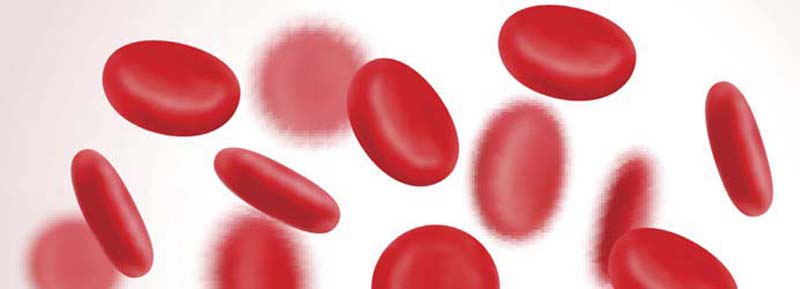
March is Myeloma Awareness Month , created by the International Myeloma Foundation (IMF) to bring more attention to this rare blood and marrow cancer. Myeloma (including multiple myeloma) represents just 1.4 percent of all new cancer cases , with the estimated new cases that were diagnosed in 2014 at a little more than 24,000.
But while the cause of myeloma is yet to be discovered, according to Dr. Jeffrey V. Matous, medical director of the Colorado Blood Cancer Institute (CBCI) and Sarah Cannon Blood Cancer Network member, there have been exciting new advancements in treating the disease.
New Myeloma Definitions and Medications
There are three definitions of multiple myeloma:
- MGUS – a precursor to multiple myeloma,
- Asymptomatic myeloma or the smoldering myeloma stage
- Symptomatic myeloma
"Recently there has been a redefining of what constitutes symptomatic multiple myeloma," said Dr. Matous, "that has resulted in patients who had been previously diagnosed with asymptomatic myeloma now determined to actually have symptomatic myeloma. This is an important change because, we are treating patients a lot sooner than we have historically."
“Another exciting development is in the treatments themselves, both those that have received FDA approval and those that are currently in clinical trials. Prior to 2000, there were few treatments available for patients with myeloma," said Dr. Matous. "But since then, there has been an explosion of new medications approved by the FDA with which we could treat our myeloma patients. This has translated into a direct and significant benefit to our patients in terms of quality of life and survival. Every time the median or average survival for patients with myeloma is analyzed, it's longer, and to see that and the effect it has on individual patients who come through our practice is gratifying.”
“Just recently at CBCI, as part of the Sarah Cannon Blood Cancer Network, we completed a protocol combining the drug carfilzomib (Kyprolis¨) with panobinostat that will be reported in the upcoming ASCO meeting in Chicago,” said Dr. Matous. "There are also a number of drugs that are in clinical trials that CBCI is involved in that we expect will gain FDA approval over the next few years, including the first of the monoclonal antibodies."
These include trials for patients with smoldering myeloma, recurrent myeloma and for those newly diagnosed people with myeloma who are too old to undergo a stem cell transplant. Of course, in Dr. Matous' opinion "high-dose chemotherapy and stem cell transplant remains a critical part of overall myeloma care in patients who are fit to undergo it. We and others are conducting important clinical trials in the area of stem cell transplant as well."
"Our trials are available for patients at any stage of the disease," said Dr. Matous, "from the first diagnosis to the point where they have exhausted other treatment options and now are looking for novel therapies or clinical trials. We have so many clinical trials, including those with patients earlier in their treatment course utilizing some of the very new medications that we get access to often way before other centers, our trials are available here in the Rocky Mountain region that is a real plus for those patients. They don't need to travel outside of our region to get access to most innovative and newest treatments in myeloma. And this is possible through our strong collaboration with Sarah Cannon."
Looking Ahead to Greater Understanding About Myeloma
But there is still much to learn about the disease, said Dr. Matous. "Researchers all over the world have dissected myeloma down to the molecular level, and what we have learned is that myeloma is an extremely complex disease, even for a cancer, and that no one approach will probably be adequate for treating myeloma. We need to attack myeloma from many different directions, often simultaneously, to optimally treat and manage it. What's exciting right now is that, as we better understand myeloma scientifically, we're better able to design and develop new treatments, which is the only way we can make an impact on our patients' lives."